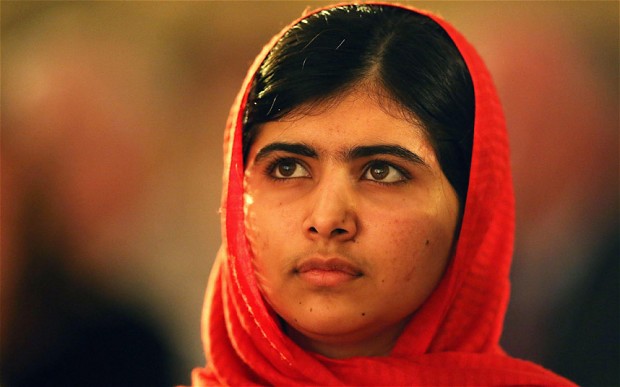Nobel Peace Prize or Political Prize For Publicity?
Why Malala Yousafzai is not a champion of peace

Many consider the Nobel Peace Prize, to be the epitome of an individual’s (or group’s) achievement. It defines the individual, puts them on the map as well as associating them with the, almost ethereal, concept of peace. While I do not disagree with my musings above, I think the awarding of the recent prizes has been fraught with misadventure and more painfully, ineptness in identifying worthy recipients.
It is first important to understand what Alfred Nobel was trying to achieve when he created the Peace prize. Nobel was an armaments manufacturer, yet he chose to bestow 4 prizes for tangible, academic achievements and one to represent a concept close to his heart. The seeds of the Peace prize were planted in Nobel’s mind, when a French newspaper, for inventing dynamite, chastised him. It is therefore fair to argue that the Peace prize was something very personal for him and that is what sets it apart from the other, more focused, prizes.
The premise of the Prize is that it is awarded to someone; “What shall have done the most or the best work for fraternity between nations, for the abolition or reduction of standing armies and for the holding and promotion of peace congresses.” That is to say, one has to make a contribution to world peace, more specifically, ending conflict. This is vital in understanding why I feel the some of the Peace prize winners have been unworthy recipients. Detractors will argue that the criterion above is an indication rather than a staunch set of rules. While I agree with that, I find a phrase within it to be an orthodoxy when it comes to the concept of peace (and thereby the awarding of the “Peace prize”). This is: “reduction of standing armies.”
Prize winners of the past have actively done this. Examples that stand out are Martin Luther King Jr, Aung San Suu Kyi, Mother Teresa and the Dalai Lama. However, there have been grave misadventures as well. Anwar Sadat and Menachem Begin who won it in 1973, both fought the British rule in their respective countries and Begin was even involved in a plot to assassinate the German Chancellor, Konrad Adenauer. Similarly, Al Gore who won it in 2007 has not done anything specific to end conflict. He was extremely successful in highlighting the detrimental effects of climate change and the winning of the Peace prize enhanced this. His ‘rival’ for the prize in 2007 was Irene Sendler, who smuggled close to 2,500 Jewish children out of Warsaw. Did climate change require greater publicity in 2007 than harking back to the Nazis? It certainly seems like it.
On the other side, Mahatma Gandhi who is a world recognized champion of “turning the other cheek” and even coined the phrase that an “eye for an eye makes the whole world blind” never won it. The committee almost awarded it to him posthumously in the year of his death (1948) but decided against it and instead withheld the prize that year. Is it fair to say that India was in no need of any publicity in 1948 as Europe was still licking its wounds after World War II? Probably not, however it does not seem implausible.
What rankles me most however is the awarding of the 2014 prize to Malala Yousafzai. She did face a difficult and dangerous life, in the Swat valley, like most of the girls from that region, however what specifically has been her achievement in promoting peace? Many will argue that she did not retaliate and that her response has been to capture the world’s attention and highlight the pathetic conditions for women in the tribal areas of Pakistan. While I agree with both, she has not actively ended the conflict or even worked towards it.
I would therefore go on to argue that Malala is a symbol of peace but not a champion of peace. While that is equally important in it’s own right, I am not convinced that she is a fitting winner of the Peace prize. This thought process of mine has not come about from a sense of jealousy or indignation but more from a sense of disappointment that the Nobel Peace Prize is beginning to lose its revered status, which I am sure is something that Alfred Nobel would be unhappy about.
(The author is a 17-year-old student at The International School, Bangalore, who hopes to read Political Science/International Relations at University. He may be contacted at karandecember1996@aol.com)


